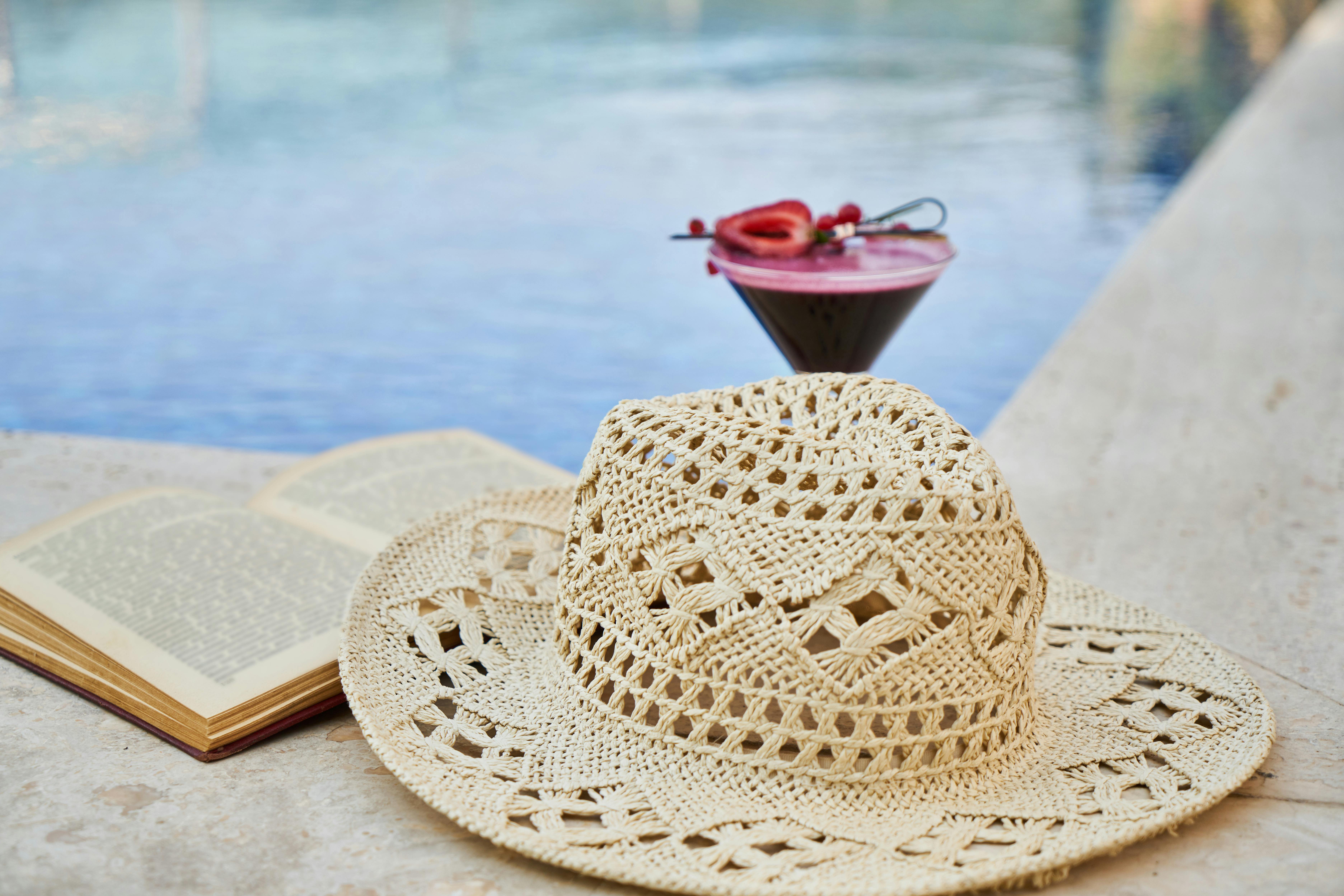Drinking enough water is essential for maintaining your health and wellbeing. But how much water should you drink every day? The amount of water you should drink each day will vary depending on your lifestyle, activity levels, and other factors. In this article, we’ll discuss how much water is recommended for an average adult and how to determine the right amount for you.The general recommendation is to drink eight 8-ounce glasses of water per day, which is equivalent to about 2 liters, or half a gallon. However, this amount can vary significantly depending on your age, activity level, and other factors. Therefore, it is best to listen to your body and drink when you are thirsty.
Benefits of Drinking Water
Drinking water is essential for good health and wellbeing. It has many benefits, including improving digestion, helping to maintain a healthy weight, and providing vital nutrients to the body. Water also helps to flush out toxins from the system, aiding in overall health and wellness. Drinking enough water can help to reduce fatigue and boost energy levels, making it essential for a productive lifestyle. Additionally, drinking water can help to hydrate the skin, keeping it looking smooth and youthful. Finally, drinking plenty of water can help to reduce the risk of certain diseases and conditions, such as kidney stones and urinary tract infections. With all these benefits, it’s no wonder that drinking plenty of water is so important for optimal health.
Making sure you drink enough water is key for your health and wellbeing. Aiming for 8 glasses per day is a great way to ensure you are reaping all the benefits that come with proper hydration. This amount may vary depending on your lifestyle and activity level. Make sure you also watch out for signs of dehydration such as dizziness or headache which could indicate you need more water than usual.
Amount of Water Needed
The amount of water an individual needs depends on a variety of factors, such as age, activity level, and climate. Generally speaking, adults should drink at least eight 8-ounce glasses of water per day. However, this may vary depending on the individual’s specific needs. For example, those who are more active or live in hot climates may need to drink more than the recommended amount.
Types of Drinks
It is important to note that other types of drinks can also contribute to one’s daily water intake. Water is the best choice since it does not contain any calories or sugar and is hydrating. However, other beverages such as tea, coffee and juice can also provide some hydration. It is important to be mindful of how much sugar or caffeine these drinks contain as too much can have negative health effects.
Timing
When it comes to staying hydrated, timing is also important. It is best to spread out water intake throughout the day rather than drinking large amounts at once. This helps keep the body properly hydrated throughout the day and prevents overhydration which can lead to headaches or nausea. Additionally, drinking a glass of water before meals can help one stay full longer and prevent overeating.
Other Factors
It is also important to be aware of other factors that can influence an individual’s hydration levels such as certain medications or medical conditions like diabetes or kidney disease which may require specific instructions regarding fluid intake. Consulting a doctor is the best way to determine how much water an individual should be drinking based on their particular needs and circumstances.
Recommended Amounts of Water Per Day
It is recommended to drink six to eight glasses of water per day. This amount may vary depending on your activity level, age, and other factors. Staying hydrated is essential for overall health and well-being.
Water helps flush out toxins from the body and helps keep organs functioning properly. Drinking enough water can also help maintain healthy skin, regulate body temperature, and aid in digestion.
Children need more water throughout the day than adults do. The amount of water a child needs depends on their size, activity level, and other factors. Children should aim to drink between four and eight cups of water each day, depending on their age and weight.
The amount of water adults should drink each day depends on their lifestyle, diet, and other factors. People who are very physically active may need to drink more than eight glasses of water per day to stay adequately hydrated. Adults who get most of their fluids from caffeinated beverages or alcohol should also aim for more than six glasses per day.
It’s important to note that even though you can get some fluids from food sources such as fruits and vegetables, it’s still important to drink plenty of plain water throughout the day as well. Aiming for at least six or eight glasses a day is a good place to start when it comes to staying hydrated.
Signs That You Are Not Drinking Enough Water
One of the most important things our bodies need to stay healthy is water. Every cell in our body needs water to function properly and if we don’t drink enough, it can cause dehydration and other health problems. There are some signs that can tell you if you’re not drinking enough water, so it’s important to be aware of them.
The first sign is thirst. If you feel thirsty, then your body is telling you that it needs more water. Another sign is dry mouth. If your mouth feels dry or sticky, it’s a sign that you need to hydrate more. Additionally, if your urine is dark yellow or brownish in colour, then this means that you are dehydrated and need more fluids.
Other signs of dehydration include feeling dizzy or lightheaded, having a headache, not having much energy or feeling weak, having dry skin and eyes or feeling confused or disoriented. Finally, if your heart rate increases without any physical activity then this is also a sign of dehydration.
It’s important to be aware of these signs so that you can drink enough water and stay hydrated throughout the day. Drinking enough water will help keep your body healthy and functioning properly.

Risks of Drinking Too Much Water
Drinking too much water can lead to a condition known as water intoxication, or hyponatremia. This occurs when there is an imbalance of electrolytes in the body due to excessive water intake. Symptoms can include nausea, confusion, fatigue, headaches, and in extreme cases coma or even death. In addition, drinking too much water can cause the body to become dangerously diluted and put strain on the kidneys as they attempt to rid the body of excess fluids. This can lead to long-term damage if not treated properly.
Drinking large amounts of water can also lead to bloating and an upset stomach. As the stomach continues to fill with fluid it causes discomfort and can even make it difficult for medications to be absorbed properly by the body. It is important to drink enough water every day but doing so in moderation is key for maintaining proper hydration levels without risking health complications.
Staying Hydrated
Staying hydrated is an important part of staying healthy. Not only does it keep us feeling good, but it also helps our bodies to function properly. When we don’t get enough fluids, our organs don’t work as efficiently and we can become dehydrated. Here are some tips for staying hydrated that can help make sure your body gets the fluids it needs:
1. Drink plenty of water throughout the day. It’s important to drink enough water so that your urine is light yellow or clear in color. If it’s dark yellow, you may be dehydrated.
2. Eat more fruits and vegetables that are high in water content, such as oranges and cucumbers. These types of foods will help you stay hydrated while also providing essential vitamins and minerals that your body needs.
3. Avoid sugary drinks such as sodas and energy drinks, as these can actually dehydrate you further due to their diuretic effects. Stick to water or low-calorie flavored waters instead for optimal hydration levels.
4. Make sure to drink before, during and after exercise, as sweating can cause dehydration quickly when not replaced with fluids immediately thereafter.
5. If you find yourself starting to feel dehydrated, try drinking a sports drink or electrolyte beverage for a quick boost of fluids and electrolytes that will help rehydrate your body faster than plain water alone would do.
By following these tips for staying hydrated, you can ensure that your body always has the fluids it needs to stay healthy and functioning properly!
Healthier Alternatives to Plain Water
Hydrating your body is an essential part of staying healthy, but drinking plain water can often become boring. If you’re looking for healthier alternatives to plain water, there are plenty of great options available.
Herbal teas are a wonderful way to get hydrated without caffeine or added sugar. Herbal teas come in a variety of flavors and can be enjoyed hot or cold. They can also provide additional health benefits depending on the type of tea you choose.
Fruit-infused water is another great option for those looking for healthier alternatives to plain water. It’s simple to make by adding fresh fruit slices such as lemons, oranges, limes, and strawberries to your water bottle or jug. The natural sweetness and flavor of the fruit will infuse your water with taste while providing some essential vitamins and minerals as well.
Smoothies are not only delicious but they are also extremely nutritious and hydrating. You can use any combination of fruits or vegetables that you like, along with a liquid such as almond milk or coconut water, and some ice cubes if desired. Smoothies are a great way to get your daily dose of fruits and vegetables while also getting hydrated naturally.
Kombucha is a fermented tea beverage that is becoming increasingly popular due to its health benefits and refreshing taste. Kombucha is rich in probiotics which help support digestive health, as well as antioxidants which help fight off free radicals in the body. It also contains B vitamins which provide energy throughout the day while hydrating your body at the same time.

Conclusion
It is important to stay hydrated with enough water intake in a day. Drinking the right amount of water is essential for your overall health. The amount of water you should drink daily depends on your age, gender, and activity level. Generally, women should aim for about 2.7 liters (91 ounces) of total water per day and men should aim for about 3.7 liters (125 ounces) of total water per day. It is also important to remember that you can get some of your daily water needs from food and other beverages like tea or juice. It is ultimately up to you to decide how much fluid you need to stay healthy and hydrated.
In conclusion, it is important that everyone drinks at least 8 glasses or 2 liters of water a day to maintain good health and keep the body functioning properly. However, the exact amount of water intake may vary depending on age, gender, body size, and activity level. Remember to also consume fluids from other sources such as tea, juice, and foods that contain high amounts of water like fruits and vegetables as well.
Stay hydrated!

